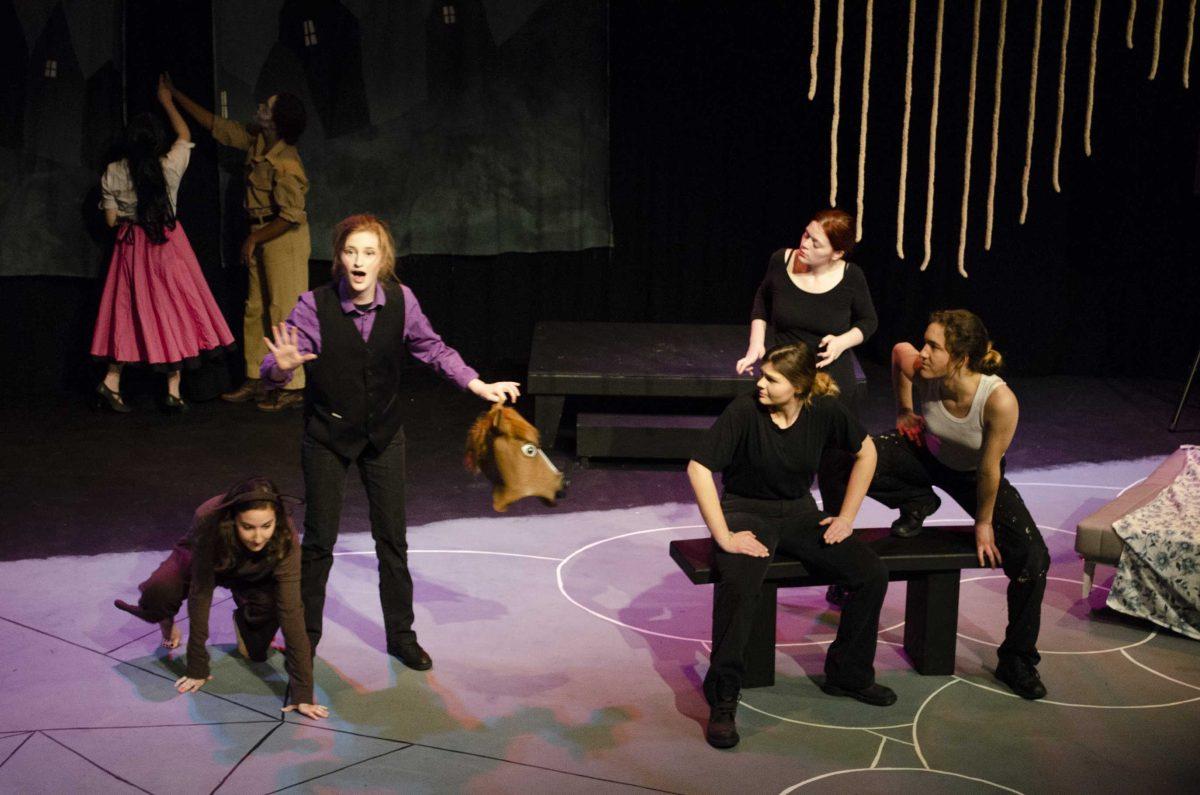The LSU School of Theatre was ranked second among all the nation’s public universities and 11th out of the top 25 programs in the nation by OnStage blog, according to a University press release.
“The OnStage blog ranking is recognition of the exceptional quality and dedication of our faculty, staff and students,” said Kristin Sosnowsky, chair and associate dean of the LSU School of Theatre in the press release.
OnStage released the ranking on Sept. 6 and features other schools like Fordham University, which ranked first, and the University of South Carolina, which ranked 17th, according to the article, “The Top 25 B.A. Theatre Programs for 2018-19.”
OnStage ranked the schools based on facilities, cost, scholarship opportunities, faculty, admissions, auditions, selectivity, curriculum, postgraduate careers, alumni support and performance opportunities, according to the press release.
The University’s School of Theatre stands out for two reasons: its professional theatre, Swine Palace, and its physical theatre concentration, Sosnowsky said. Swine Palace is a non-profit, professional theatre company associated with the University’s School of Theatre.
“Today, the School remains one of a handful of programs in the country with an affiliate Equity theatre, providing our students the opportunity to work alongside leading professionals and giving our patrons access to some of the brightest talent in the country,” the press release said.
Theatre senior Jeremiah Turner said he thinks the physical theatre program especially distinguishes the School of Theatre.
Students can take physical theatre classes, like improvisation, aerial skills and dance and stage movement without concentrating in it specifically. Turner said he took an aerial silks class his sophomore year and continued to take it for three more semesters after.
Sosnowsky said the School of Theatre does not require auditions for admission into the undergraduate program in order to “stay true to the B.A. mission.”
Admission rates to the University’s theatre program have risen steadily over the past six or seven years. This year, admissions, similar to the University as a whole, increased about 30 percent, Sosnowsky said. The majority of students are Louisiana natives. However, the program has also received some attention from students from Texas and other states.
The School of Theatre also brings in guest artists to work with students, typically for about four to six weeks, so students spend almost as much time with them as they do with other faculty, Sosnowsky said.
“That combination of people they’re working with across the board, from other students to faculty and guest artists, along with the types of multiple opportunities we offer to students, makes our program really distinctive,” Sosnowsky said.
Sosnowsky said support from the administration has helped ensure the quality of the program and the performances its students are involved in, especially the performing arts fee on the student fee bill.
“I think the upper administration really appreciates the arts on campus, and they see us as a vital part of the University community,” Sosnowsky said. “I think our programs are well supported here at LSU.”
The University’s theatre program allows undergraduate students to explore concentrations in arts administration, design and technology, film, performance, physical theatre and theatre studies.
“Most of our students actually have their hand in all different areas,” Sosnowsky said. “They perform, they design [and] they do technology. Recently, since we’ve started a film initiative, they cross over into film.”
Turner said he entered the program with a concentration in performance but became interested in sound design while completing his theatre tech class requirement. After his first sound design class, Turner changed his concentration to include both performance and design.
“[The School of Theatre] helps you develop passions that you didn’t know you had,” Turner said. “I developed a deep appreciation for sound design and design as a whole as an aspect of theatre.”
Now, Turner said he’s designing for a main stage production of The Diary of Anne Frank, a unique opportunity since most main stage productions rely on faculty and graduate students. Turner debuted as a sound designer last semester during the production of Woyzeck.
Sosnowsky said the variety of experiences offered by the School of Theatre elevates the quality of the program, allowing students to build their portfolios while creating a tight-knit community.
“The reason all of these different parts work so beautifully is because we are a community,” said Richard Holden, associate professor of acting and directing, in the press release. “We are a group of artists working with a common goal.”
The School of Theatre also offers master’s and Ph.D. programs.
“I think that community of multiple levels of artists drives [undergraduates] to be better,” Sosnowsky said. “They have examples that aren’t just faculty related, but they see what can be.”
Post-graduation, Sosnowsky said several students stay in the area to work in the school system, while others move on to the school’s postgraduate programs. Several students also pursue careers in acting, film, design, directing and technology, moving to places like Chicago, where the University has well-connected alumni.
“There’s a lot of people doing a lot of different things, which I think is a testament to the diverse education,” Sosnowsky said. “They can go out and try their hand in a lot of different things or stay here and make an impact on the community, which we also appreciate.”
As for Turner, he hopes to pursue a career in stand-up comedy after his involvement in improv classes piqued his interest in the area, he said. He now works with a Baton Rouge-based company, No Show Comedy. He also aspires to work in sound design in addition to stand-up comedy, hopefully merging the two.
LSU theatre program ranked second among public universities
September 25, 2018
LSU Theatre holds a live dress rehearsal for “Woyzeck” on Monday, April 9, 2018, in the Music and Dramatic Arts building.
More to Discover







